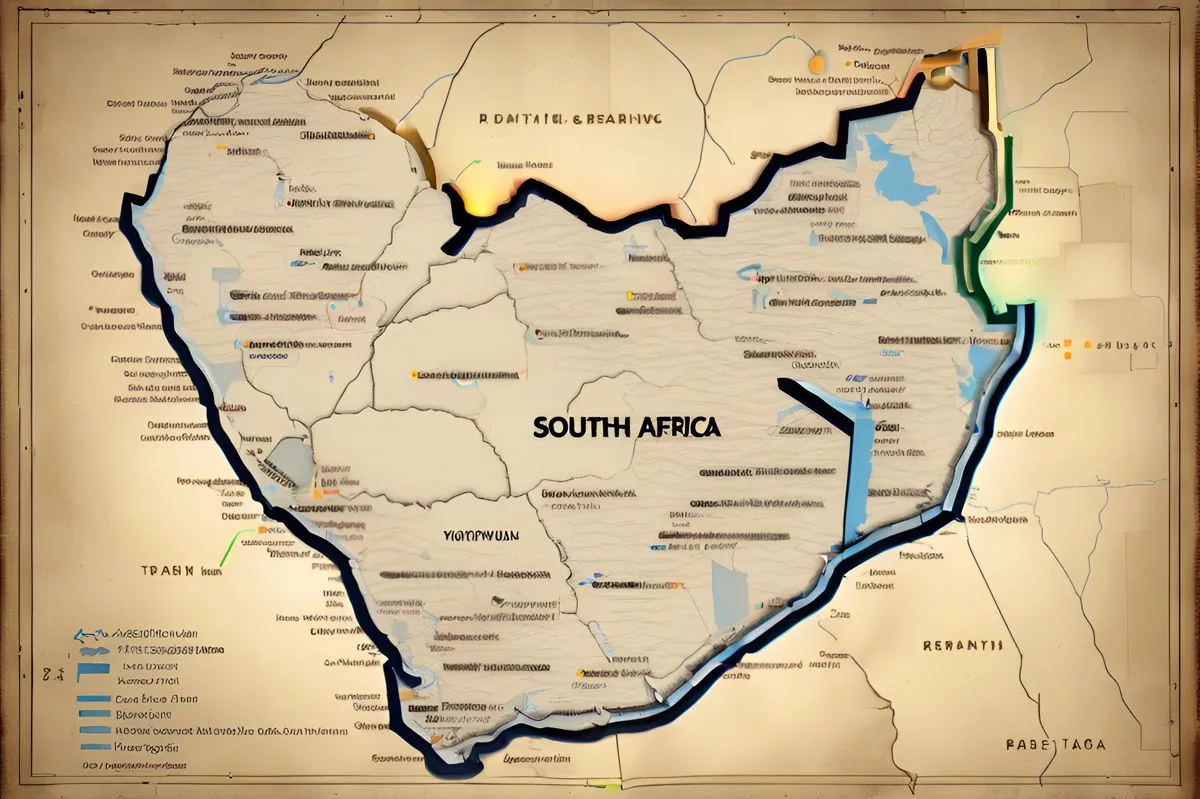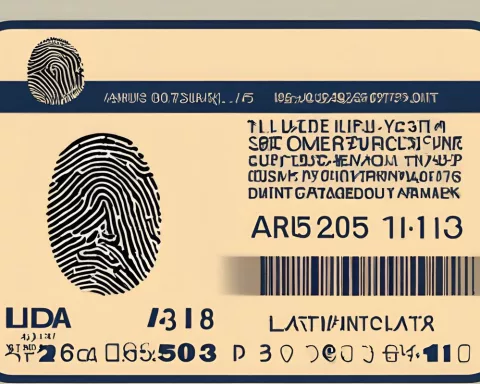South Africa is making it easier for people to get smart IDs and passports by working with banks. Right now, 30 branches offer these services, and soon, 34 more will join in, making it even more accessible for everyone. This effort not only provides convenience but also ensures that services reach people in both cities and smaller towns. With banks like FNB and Absa leading the way, South Africa is embracing new technology to create a faster and friendlier experience for all its citizens.
How is South Africa transforming identification services?
South Africa is transforming identification services by expanding smart ID and passport access through partnerships with banks. Currently, 30 branches offer these services, with plans for 34 more, enhancing accessibility and efficiency for citizens nationwide. This initiative promotes inclusivity and leverages bank networks for improved service delivery.
In an era of swift technological progress, South Africa witnesses a significant transformation in public services. The government has launched a bold initiative to expand smart ID and passport services through strategic partnerships with leading banks. This effort is set to democratize access to essential identification services, leveraging the vast network of bank branches to enhance efficiency and convenience for citizens across the nation.
Expanding Access Through Strategic Partnerships
Currently, 30 bank branches in South Africa provide smart ID and passport services, but a significant expansion is underway. An additional 34 branches will soon join the initiative, doubling the availability of these vital services. Spearheading this collaboration are the Banking Association of South Africa (BASA) and the Department of Home Affairs (DHA), who are finalizing public-private partnership agreements to solidify the foundation of this ambitious plan.
FNB, a prominent financial institution in the country, aims to expand its reach by adding 18 new eHomeAffairs-enabled branches. This addition intends to fill service gaps in areas where FNB currently lacks a presence, ensuring a more balanced distribution of services across various provinces. The bank’s proactive stance highlights its dedication to improving customer experiences and delivering cutting-edge solutions that cater to the evolving needs of its clients.
Similarly, Absa is gearing up to activate 12 branches for the initiative, showcasing its commitment to this expansion. While Nedbank has yet to unveil specific expansion plans, it has expressed a clear intention to join this transformative effort. Discovery Bank, recognized for innovative banking solutions, plans to introduce four strategically located branches in Century City, Sea Point, Pretoria, and Umhlanga, enhancing access in key urban centers.
Diverse Approaches and Strategic Locations
Standard Bank has taken a more cautious approach, waiting for the finalization of PPP agreements before proceeding with its expansion plans. This careful strategy reflects the bank’s focus on seamlessly integrating services and upholding its reputation for reliability and excellence.
The geographical spread of existing branches offering smart ID and passport services showcases a range of strategic locations. Standard Bank, for instance, operates branches in high-traffic areas such as Canal Walk Shopping Centre in Cape Town, Century Blvd, and the bustling Centurion Lifestyle Centre in Gauteng. These branches serve as crucial hubs for citizens seeking convenient access to essential identification services.
FNB’s presence is equally noteworthy, with branches in Burgersfort‘s Twin City Complex and Centurion’s Lifestyle Centre. This strategic placement underscores FNB’s commitment to serving both urban and semi-urban communities, ensuring that citizens from diverse regions benefit from streamlined services.
Nedbank, with a rich history of serving South Africans, maintains branches in areas like Arcadia, Roodepoort, Durban North, and Nelspruit. The bank’s network emphasizes accessible services across key commercial and residential centers, reflecting its focus on both metropolitan and suburban areas.
Commitment to Accessibility and Innovation
Absa’s branches, positioned in bustling urban areas such as Centurion, Krugersdorp, Port Elizabeth, and Sandton, reflect the bank’s dedication to serving a diverse clientele. By offering smart ID and passport services in these locations, Absa plays a vital role in facilitating essential services, contributing to national socio-economic development.
The inclusion of Discovery Bank and Investec Bank underscores the growing involvement of newer financial institutions in expanding public service access. Discovery Bank’s head office in Sandton and Investec’s Sandown branch are set to provide citizens with streamlined services in state-of-the-art facilities, highlighting the banks’ commitment to innovation and customer satisfaction.
This strategic expansion marks a significant milestone in South Africa’s journey toward enhanced public service delivery. By harnessing the infrastructure and customer-centric approach of leading banks, this initiative promises to transform how citizens access essential identification services.
Embracing Innovation and Inclusivity
This initiative aligns with global trends emphasizing public-private partnerships to tackle complex societal challenges. In South Africa, this collaborative approach not only improves service delivery but also strengthens the relationship between the government and private sector, fostering mutual growth and development.
The expansion resonates with digital age principles, where convenience, accessibility, and efficiency are key. By integrating digital solutions and innovative technologies within bank branches, the initiative aims to streamline processes, reduce wait times, and provide citizens with a seamless experience when accessing smart ID and passport services.
Moreover, the geographical distribution of participating branches underscores a commitment to inclusivity and diversity. By ensuring services are accessible in varied urban and suburban areas, the initiative addresses regional disparities and promotes equitable access to essential services.
As this ambitious plan unfolds, it stands as a testament to South Africa’s capability to harness innovation and collaboration for a more efficient and inclusive society. Through strategic partnerships and a shared vision for progress, the expansion of smart ID and passport services via bank branches promises to empower citizens and drive the nation’s ongoing transformation.
“`markdown
What is the initiative transforming identification services in South Africa?
The initiative is a collaboration between the South African government and leading banks aimed at expanding access to smart ID and passport services. This transformation includes the establishment of additional service points in bank branches, making these vital services more accessible to citizens.
How many branches are currently offering smart ID and passport services?
Currently, 30 bank branches in South Africa offer smart ID and passport services. Plans are underway to expand this number by an additional 34 branches, enhancing accessibility for citizens across the country.
Which banks are involved in this initiative?
The primary banks involved in this initiative include FNB, Absa, Nedbank, Discovery Bank, and Investec Bank. Each of these banks is contributing to the expansion of services by activating new branches or enhancing existing services to serve their clients better.
What areas are being targeted for service expansion?
The expansion is targeting both urban and semi-urban areas throughout South Africa. Specific branches have been strategically placed in high-traffic locations such as Canal Walk Shopping Centre in Cape Town, Centurion Lifestyle Centre, and various branches in cities like Port Elizabeth and Sandton to ensure convenient access.
How does this initiative improve accessibility for citizens?
By leveraging the extensive network of bank branches, the initiative makes it easier for citizens in both urban and rural areas to access smart ID and passport services without needing to travel long distances. This approach promotes inclusivity and reduces regional disparities in service delivery.
What technologies are being used to enhance the identification services?
The initiative embraces innovative technologies to streamline identification services, including digital solutions and efficient processing systems within bank branches. This modernization aims to reduce wait times and improve the overall customer experience when applying for smart IDs and passports.
“`












